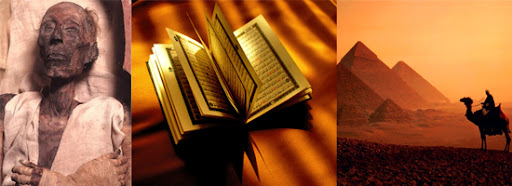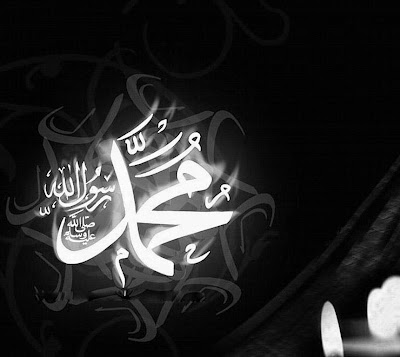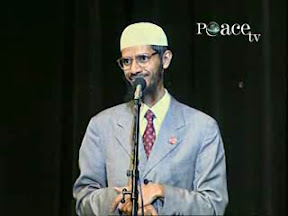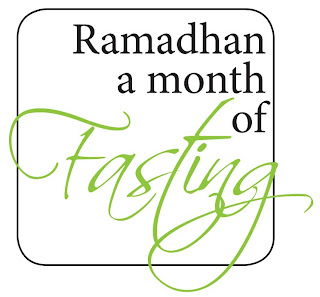Keith L. Moore
Professor Emeritus, Department of Anatomy and Cell Biology, University of Toronto. Distinguished embryologist and the author of several medical textbooks, including Clinically Oriented Anatomy (3rd Edition) and The Developing Human (5th Edition, with T.V.N. Persaud).
Dr. Moore was a former President of the Canadian Association of Anatomists, and of the American Association of Clinical Anatomists. He was honoured by the Canadian Association of Anatomists with the prestigious J.C.B. Grant Award and in 1994 he received the Honoured Member Award of the American Association of Clinical Anatomists "for outstanding contributions to the field of clinical anatomy."
"For the past three years, I have worked with the Embryology Committee of King Abdulaziz University in Jeddah, Saudi Arabia, helping them to interpret the many statements in the Qur'an and Sunnah referring to human reproduction and prenatal development. At first I was astonished by the accuracy of the statements that were recorded in the 7thcentury AD, before the science of embryology was established. Although I was aware of the glorious history of Muslim scientists in the 10th century AD, and some of their contributions to Medicine, I knew nothing about the religious facts and beliefs contained in the Qur'an and Sunnah."[2]
At a conference in Cairo he presented a research paper and stated:
"It has been a great pleasure for me to help clarify statements in the Qur'an about human development. It is clear to me that these statements must have come to Muhammad from God, or Allah, because most of this knowledge was not discovered until many centuries later. This proves to me that Muhammad must have been a messenger of God, or Allah." [1]
Professor Moore also stated that:
"...Because the staging of human embryos is complex, owing to the continuous process of change during development, it is proposed that a new system of classification could be developed using the terms mentioned in the Qur'an and Sunnah. The proposed system is simple, comprehensive, and conforms with present embryological knowledge."
"The intensive studies of the Qur'an and Hadith in the last four years have revealed a system of classifying human embryos that is amazing since it was recorded in the seventh century A.D... the descriptions in the Qur'an cannot be based on scientific knowledge in the seventh century..."[1]
E. Marshall Johnson
Professor and Chairman of the Department of Anatomy and Developmental Biology, and Director of the Daniel Baugh Institute, Thomas Jefferson University, Philadelphia, Pennsylvania, USA.
Author of over 200 publications. Former President of the Teratology Society among other accomplishments. Professor Johnson began to take an interest in the scientific signs in the Qur'an at the 7th Saudi Medical Conference (1982), when a special committee was formed to investigate scientific signs in the Qur'an and Hadith. At first, Professor Johnson refused to accept the existence of such verses in the Qur'an and Hadith. But after a dicussuion with Sheikh Zindani he took an interest and concentrated his research on the internal as well as external development of the fetus.
"...in summary, the Qur'an describes not only the development of external form, but emphasises also the internal stages, the stages inside the embryo, of its creation and development, emphasising major events recognised by contemporary science."
"As a scientist, I can only deal with things which I can specifically see. I can understand embryology and developmental biology. I can understand the words that are translated to me from the Qur'an. As I gave the example before, if I were to transpose myself into that era, knowing what I do today and describing things, I could not describe the things that were described...
I see no evidence to refute the concept that this individual Muhammad had to be developing this information from some place... so I see nothing here in conflict with the concept that divine intervention was involved in what he was able to write..." [1]
T.V.N. Persaud
Professor of Anatomy, and Professor of Paediatrics and Child Health, University of Manitoba, Winnipeg, Manitoba, Canada.
Author and editor of over 20 books, and has published over 181 scientific papers. Co-author of The Developing Human (5th Edition, with Keith L. Moore).He received the J.C.B. Grant Award in 1991. Professor Peraud presented several research papers.
"It seems to me that Muhammad was a very ordinary man, he couldn't read, didn't know how to write, in fact he was an illiterate...
We're talking about 1400 years ago, you have some illiterate person making profound statements that are amazingly accurate, of a scientific nature...
I personally can't see how this could be mere chance, there are too many accuracies and like Dr. Moore, I have no difficulty in my mind reconciling that this is a divine inspiration or revelation which lead him to these statements." [1]
Joe Leigh Simpson
Professor and Chairman of the Department of Obstetrics and Gynaecology, Baylor College of Medicine, Houston, Texas, USA.
He is the President of the American Fertility Society. He has received many awards, including the Association of Professors of Obstetrics and Gynaecology Public Recognition Award in 1992. Like many others, Professor Simpson was taken by surprise when he discovered that the Qur'an and Hadith contain verses related to his specialised field of study. When he met with Sheikh Abdul-Majeed A.Zindani, he insisted on verifying the text presented to him from the Qur'an and Hadith.
"... these Hadiths (sayings of Muhammad) could not have been obtained on the basis of the scientific knowledge that was available at the time of the 'writer'... It follows that not only is there no conflict between genetics and religion (Islam) but in fact religion (Islam) may guide science by adding revelation to some of the traditional scientific approaches... There exist statements in the Qur'an shown centuries later to be valid which support knowledge in the Qur'an having been derived from God." [1]
Gerald C. Goeringer
Professor and Co-ordinator of Medical Embryology in the Department of Cell Biology, School of Medicine, Georgetown University, Washington DC, USA.
Sheikh Abdul-Majeed A.Zindani met with Professor Goeringer and asked him whether in the history of embryology was there any mention of the different stages of embryonic development, or whether there existed any embryological texts at the time of the Prophet. Sheikh Zindani also asked his opinion regarding the terms the Qur'an uses to describe the different phases of fetal development. After several long discussions, he presented a study at the 8th Saudi Medical Conference:
"...In a relatively few ayahs (Qur'anic verses) is contained a rather comprehensive description of human development from the time of commingling of the gametes through organogenesis. No such distinct and complete record of human development such as classification, terminology, and description existed previously. In most, if not all instances, this description antedates by many centuries the recording of the various stages of human embryonic and fetal development recorded in the traditional scientific literature." [1]
Alfred Kroner
Professor of the Department of Geosciences, University of Mainz, Germany.
Professor Kroner is one of the world's most famous geologists, becoming well known among his colleague scientists for his criticisms against the theories of some of the major scientists in his field. Sheikh Abdul-Majeed A. Zindani met with him and presented several Qur'anic verses and Hadith which he studied and commented upon.
"Thinking where Muhammad came from... I think it is almost impossible that he could have known about things like the common origin of the universe, because scientists have only found out within the last few years with very complicated and advanced technological methods that this is the case."
"Somebody who did not know something about nuclear physics 1400 years ago could not, I think, be in a position to find out from his own mind for instance that the earth and the heavens had the same origin, or many others of the questions that we have discussed here...
If you combine all these and you combine all these statements that are being made in the Qur'an in terms that relate to the earth and the formation of the earth and science in general, you can basically say that statements made there in many ways are true, they can now be confirmed by scientific methods, and in a way, you can say that the Qur'an is a simple science text book for the simple man. And that many of the statements made in there at that time could not be proven, but that modern scientific methods are now in a position to prove what Muhammad said 1400 years ago." [1]
Yushidi Kusan
Director of the Tokyo Observatory, Tokyo, Japan.
Sheikh Abdul-Majeed A. Zindani presented a number of Qur'anic verses describing the beginnings of the universe and of the heavens, and the relationship of the earth to the heavens. He expressed his astonishment, saying that the Qur'an describes the universe as seen from the highest observation point, everything is distinct and clear.
"I say, I am very much impressed by finding true astronomical facts in Qur'an, and for us modern astronomers have been studying very small piece of the universe. We have concentrated our efforts for understanding of very small part. Because by using telescopes, we can see only very few parts of the sky without thinking about the whole universe. So by reading Qur'an and by answering to the questions, I think I can find my future way for investigation of the universe." [1]
Professor Armstrong
Professor Armstrong works for NASA and is also Professor of Astronomy, University of Kansas, Lawrence, Kansas, USA.
Prof. Armstrong was asked a number of questions about Qur'anic verses dealing with his field of specialisation. He was eventually asked, "You have seen and discovered for yourself the true nature of modern Astronomy by means of modern equipment, rockets, and satellites developed by man. You have also seen how the same facts were mentioned by the Qur'an fourteen centuries ago. So what is your opinion?"
"That is a difficult question which I have been thinking about since our discussion here. I am impressed at how remarkably some of the ancient writings seem to correspond to modern and recent Astronomy. I am not a sufficient scholar of human history to project myself completely and reliably into the circumstances that 1400 years ago would have prevailed.
Certainly, I would like to leave it at that, that what we have seen is remarkable, it may or may not admit of scientific explanation, there may well have to be something beyond what we understand as ordinary human experience to account for the writings that we have seen." [1]
William Hay
Professor of Oceanography, University of Colorado, Boulder, Colorado, USA.
Professor Hay is one of the best known marine scientist in the USA. Sheikh Abdul-Majeed A. Zindani met with him and asked him many questions about the marine surface, the divider between upper and lower sea, and about the ocean floor and marine geology.
"I find it very interesting that this sort of information is in the ancient scriptures of the Holy Qur'an, and I have no way of knowing where they would have come from. But I think it is extremely interesting that they are there and this work is going on to discover it, the meaning of some of the passages."
And when he was asked about the source of the Qur'an, he replied, "Well, I would think it must be the divine being." [1]
Durja Rao
Professor of Marine Geology teaching at King Abdulaziz University, Jeddah, Saudi Arabia.
Sheikh Zindani presented to Prof. Rao many verses dealing with his area of specialisation, and asked: "What do you think of the existence of the scientific information in the Qur'an? How could Prophet Muhammad(Peace be upon him) have known about these facts fourteen centuries ago?"
"It is difficult to imagine that this type of knowledge was existing at that time, around 1400 years back. May be some of the things they have simple idea about, but to describe those things in great detail is very difficult. So this is definitely not simple human knowledge. A normal human being cannot explain this phenomenon in that much detail. So, I thought the information must have come from a supernatural source." [1]
Tejatat Tejasen
Chairman of the Department of Anatomy and is the former Dean of the faculty of Medicine, University of Chiang Mai, Chiang Mai, Thailand
Professor Tejasen studied various articles concerning the Qur'an and modern embryology. He spent four days with several scholars, Muslims and non-Muslims, discussing this phenomenon in the Qur'an and Hadith. During the 8th Saudi Medical Conference in Riyadh, Saudi Arabia he stood up and said:
"In the last three years, I became interested in the Qur'an... From my studies and what I have learned throughout this conference, I believe that everything that has been recorded in the Qur'an fourteen hundred years ago must be the truth, that can be proved by the scientific means.
Since the Prophet Muhammad could neither read nor write, Muhammad must be a messenger who relayed this truth which was revealed to him as an enlightenment by the one who is eligible creator. This creator must be God, or Allah.
I think this is the time to say La ilaha illa Allah, there is no god to worship except Allah (God), Muhammad rasoolu Allah, Muhammad is Messenger of Allah...
The most precious thing I have gained from coming to this conference is La ilaha illa Allah, and to have become Muslim." [1]
Dr. Maurice Bucaille
Born in 1920, former chief of the Surgical Clinic, University of Paris, has for a long time deeply interested in the correspondences between the teachings of the Holy Scriptures and modern secular knowledge.
He is the author of a best-seller, "The Bible, The Qur'an and Science" (1976). His classical studies of the scriptural languages, including Arabic, in association with his knowledge of hieroglyphics, have allowed him to hold a multidisciplinary inquiry, in which his personal contribution as a medical doctor has produced conclusive arguments. His work, "Mummies of the Pharaohs - Modern Medical Investigations" (St. Martins Press, 1990), won a History Prize from the Académie Française and another prize from the French National Academy of Medicine.
His other works include: "What is the Origin of Man" (Seghers, 1988), "Moses and Pharaoh, the Hebrews in Egypt", (NTT Mediascope Inc, 1994); and "Réflexions sur le Coran" (Mohamed Talbi & Maurice Bucaille, Seghers, 1989)
After a study which lasted ten years, Dr. Maurice Bucaille addressed the French Academy of Medicine in 1976 concerning the existence in the Qur'an of certain statements concerning physiology and reproduction. His reason for doing that was that :
"...our knowledge of these disciplines is such, that it is impossible to explain how a text produced at the time of the Qur'an could have contained ideas that have only been discovered in modern times."
"The above observation makes the hypothesis advanced by those who see Muhammad as the author of the Qur'an untenable. How could a man, from being illiterate, become the most important author, in terms of literary merits, in the whole of Arabic literature?
How could he then pronounce truths of a scientific nature that no other human-being could possibly have developed at that time, and all this without once making the slightest error in his pronouncement on the subject?"
-----------------------------------------------------------------
[1] al-Zindani, Abdul-Majeed A, This is the Truth (video tape). Scientific Signs of the Qur'an and Sunnah containing interviews with various scientists. Available in Arabic, English, French, Urdu and Turkish. A full English transcript of this video with illustrations is also available: Al-Rehaili, Abdullah M., This is the Truth, Muslim World League, Makkah al-Mukarrammah, 1995.
[2] Moore, Keith L. and al-Zindani, Abdul-Majeed A., The Developing Human with Islamic Additions, Third Edition, W.B. Saunders Company, Philadelphia, 1982, with Dar Al-Qiblah for Islamic Literature, Jeddah, Saudi Arabia, 1983, page viiic. Limited Edition.
[3] Moore, Keith L., al-Zindani, Abdul-Majeed A., Ahmed Mustafa A, The Qur'an and Modern Science - Correlation Studies, Islamic Academy for Scientific Research, Makkah, Saudi Arabia. Reprinted by World Assembly of Muslim Youth (WAMY), USA., 1990, ISBN 0-9627236-0-6. Collection of papers presented at a symposium sponsored by the Muslim Students Association, University of Illinois, May 1990.
[4] Moore, Keith L.; Johnson, E. Marshall; Persaud, T.V.N.; Goeringer, Gerald C.; Zindani, Abdul-Majeed A.; and Ahmed Mustafa A, Human Development as Described in the Qur'an and Sunnah, Commission on Scientific Signs of the Qur'an and Sunnah, Muslim World League, Makkah Al-Mukarramah, Saudi Arabia, 1992, ISBN 0-9627236-1-4. Collection of papers that were originally presented in the First International Conference on Scientific Signs of the Qur'an and Sunnah, held in Islamabad, Pakistan, 1987, and after some modifications and development, presented in their present form in Dakar, Sengal in July 1991.




























